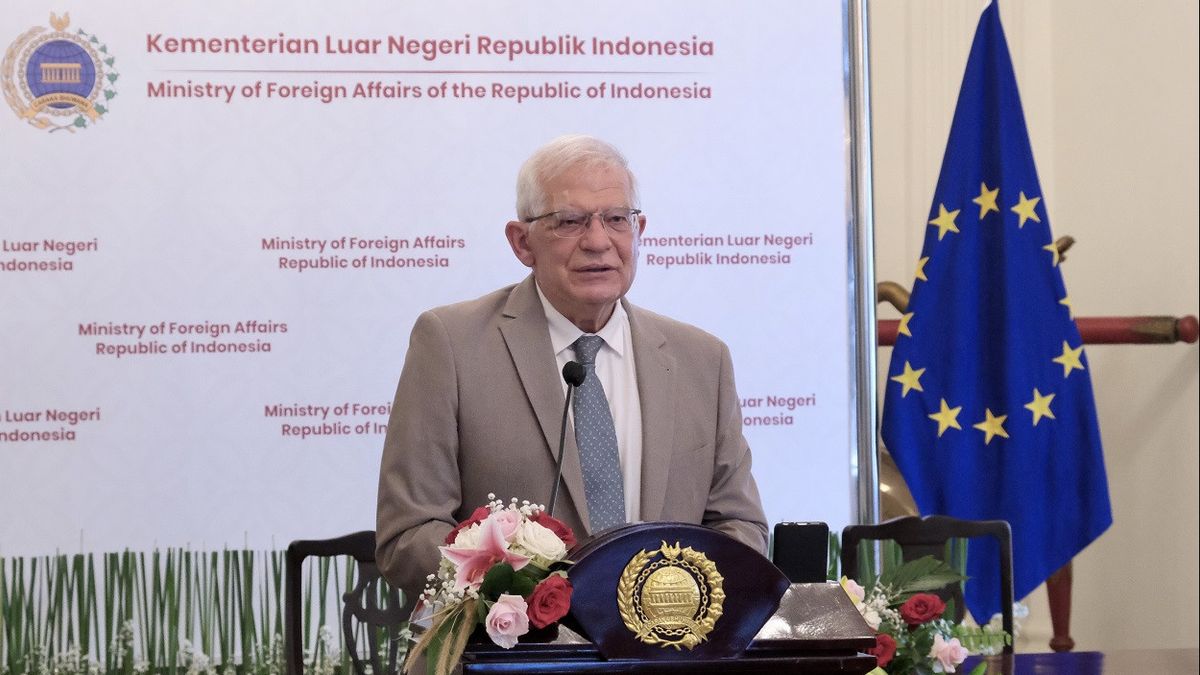JAKARTA - The European Union will set a formal strategy on Thursday to increase its presence in the Indo-Pacific and counter China's rising power, after Australia, Britain and the United States announced the AUKUS alliance.
The US, UK and Australia said on Wednesday they would build a security partnership for the Indo-Pacific, including helping Australia acquire nuclear-powered submarines, amid China's rapidly growing influence in the region.
The European Union's Head of Foreign Policy Josep Borrell said the security pact made by the three countries showed that the European Union must develop its own defense and security strategy, especially in the Indo-Pacific.
Josep Borrell said he was not consulted on Wednesday's deal for Washington to help Canberra build a nuclear submarine fleet, scrapping a deal with France to design diesel-electric submarines.
"We have to survive on our own, as others have done," Borrell said as he presented the EU's new strategy for the Indo-Pacific region, speaking of the 'strategic autonomy' that French President Emmanuel Macron has championed.
"I understand the extent to which the French government must be disappointed." The agreement between Britain, the United States and Australia resulted in the cancellation of a French-designed submarine project deal worth 40 billion US dollars.
Meanwhile, a spokesman for the EU's foreign policy chief said the bloc had not been notified of the security partnership and was seeking to find out more.
"We have to have discussions with member states to assess the implications," Peter Stano told a regular press briefing.
Led by France, Germany and the Netherlands, which first laid out a way to deepen ties with countries such as India, Japan and Australia, the 27-member European Union wants to use the plan to show Beijing it is against the spread of authoritarianism.
Following the initial plan in April, the EU will outline in detail how it plans to deepen ties with its allies on environmental, trade and digital policy, as well as seek to develop a maritime presence to keep trade routes open.
Diplomats said the plan was not "anti-China", although the envoy in Brussels acknowledged Beijing would likely see it that way, as tensions over the contested territory and maritime zone grow, as well as concerns about China's military build-up.
The English, Chinese, Japanese, Arabic, and French versions are automatically generated by the AI. So there may still be inaccuracies in translating, please always see Indonesian as our main language. (system supported by DigitalSiber.id)









